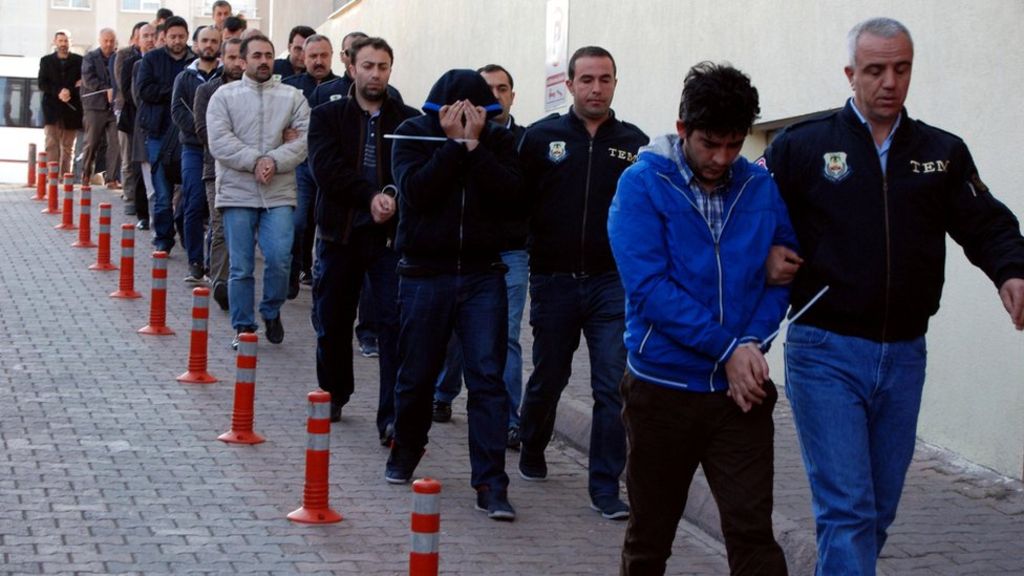Government prosecutors in Turkey have issued warrants for the arrests of 118 individuals, primarily from its military and police forces. Ankara is accusing 42 members of the military and the national gendarmerie of cooperation with prominent cleric Fethullah Gulen.
The accusations are based on confessions from the interrogation of suspects arrested earlier, as well as “analyses of pay phone calls.” The arrests include 24 officers that were working on active duty up to the moment the state issued the warrants.
Military members
An additional 76 military, gendarmerie, and civilian individuals are targeted for allegedly using pay phones to contact members of Gulen’s organization. The issued warrants request the immediate arrest of members of the military, navy, and air force and include a colonel and three lieutenants.
The arrest warrants are similar to those issued in July 2016, when Turkish President Recep Tayyip Erdogan cracked down on alleged supporters of Gulen following a failed military coup. In 2016, Ankara suspended 150,000 civil servants, military personnel, and civilians, leading to them losing their jobs because the government considered them to be supporters of the exiled cleric.
Turkish state media Anadolu Agency reported that 72 suspects had been detained after an operation that involved simultaneous raids in 35 provinces across Turkey. Anadolu Agency called the arrests an “anti-terror” operation and reiterated the alleged connection to what the Turkish state calls the “Fethullah Terrorist Organization.”
State repression
The state has accused the arrested suspects of trying to overthrow the Turkish regime through the infiltration of the country’s security forces, military, and judiciary. But many experts accuse the Turkish state of a “dramatic erosion of its rule of law and democracy framework.”
Human rights NGO Human Rights Watch has stated that since the 2016 crackdown, Turkey is “experiencing a deepening human rights crisis.” The watchdog is expressing concerns over the misuse of terrorism charges used to jail opposition figures and dissenting voices in Turkish society.
Amnesty International fears the use of anti-terrorism laws are used “in the absence of evidence of any criminal wrongdoing, to silence real or perceived dissent.” Amnesty also highlights the increased censorship in Turkish media, including the new licensing laws and criminal prosecutions intended to silence social media criticism.

